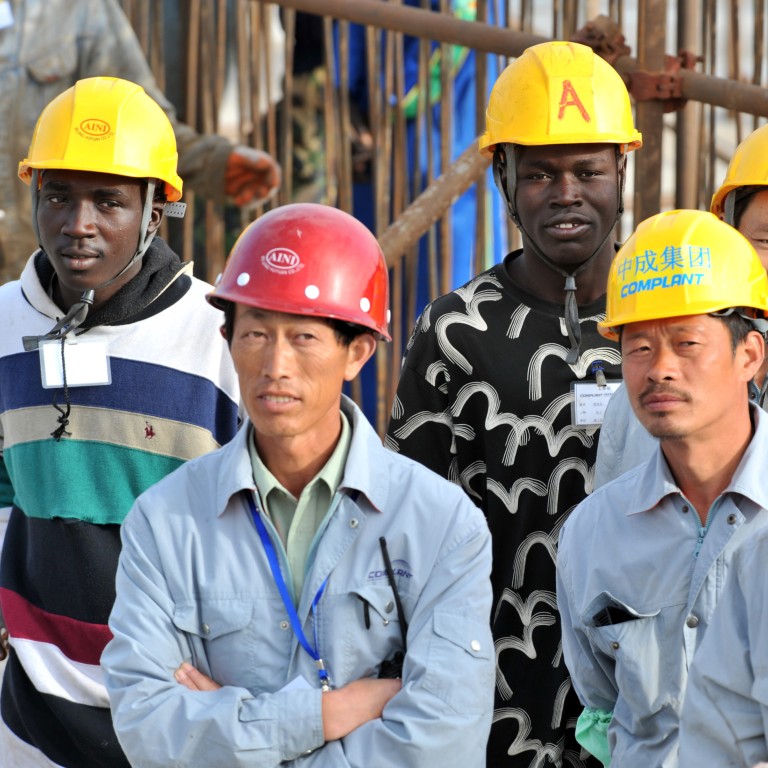
Chinese firms learn to win friends and influence Africans offering contracts
- ‘Local patrons’ help China’s private companies to make inroads in the continent amicably, rather than alienating the authorities or public
- Knowledge and contacts gained through local staff enhances Chinese entities’ ability to compete for projects
Chinese capital and state financiers including policy banks fuelled the initial wave of Chinese expansion to African markets in the late 1990s and early 2000s. Then came the Chinese government’s “go out policy”, encouraging companies to venture into Africa and resulting in growing competition, especially in the construction sector.
Their inroads met challenges, particularly as Africans became “increasingly wary of the Chinese”, who were feared to be “taking their jobs”, according to the paper, published this month by foreign policy think tank LSE IDEAS and based on surveys of private Chinese construction companies in Ghana between November 2019 and July 2020.
“These events have thus compelled the Chinese to localise in the African business environment by making friends not only with the elites but more importantly the local patrons on whom the success of their business largely depends,” wrote Chris Alden, a professor of international relations, and Nathaniel Ocquaye, respectively LSE IDEAS’ director and project assistant.
“Without [these local patrons], the Chinese will not be able to navigate the market and communicate with clients.”
Unlike their state-owned peers, with their access to government finance, private entities’ success “was not exclusively predicated on networks within Chinese state institutions and provincial sources”, the researchers said.
Companies employed locals in managerial and technical positions, with or without Chinese language abilities. One such Ghanaian manager was “a well-connected person with links to the local state officials and excellent knowledge of the market”.
“He helps them to get their imported goods from China cleared with ease and liaises with local state authorities on their behalf to get the Chinese out of trouble from, for example, tax evasion,” the researchers wrote.
Trevor Noah draws fire with ‘colonial’ China in Africa jibe
At another company, the human resources manager, a Ghanaian hailing from the region of operation, had connections with the district chief executive, police, fire service authorities, electricity company and tax revenue authority.
“This has built a very solid relationship between the Chinese and the local state authorities, which contributes to their operation in the community being both without strife and profitable,” the researchers wrote.
To help strengthen relationships with communities and authorities, Chinese companies make donations of various kinds locally.
“This kind of relationship further opens the door to get contracts from the state, especially when they have been decentralised to the local state authorities,” the LSE scholars said.
Ocquaye said the formula in Ghana “should be very common” in other African countries, with more than 10,000 Chinese companies operating in the continent.
Some deals involving Chinese companies in Africa have been dogged by corruption allegations. Kenya’s former parliamentary majority leader Aden Duale last year claimed that the cost of the country’s Standard Gauge Railway, which was Chinese built and funded, was inflated to cover kickbacks.
“The reason people went to China for loans was that people were excited about the 10 per cent,” Duale – who represented the government in the National Assembly when the deal was signed in 2013 – said last year in a television interview. “The price is inflated to cover up that 10 per cent.”
Ocquaye said he had no hard evidence on that claim but was “not surprised at all at the alleged mark-up”. “It is very common, even in strictly regulated environments, to find people in the infrastructure sector involved in inflating prices and invoices for personal aggrandisement,” he said.


